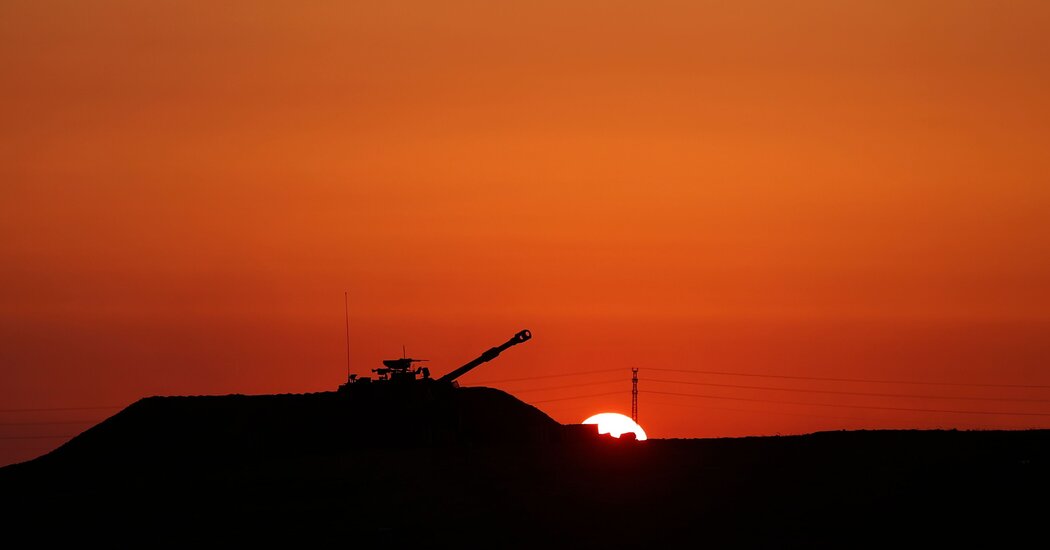
Israel and Palestinian Islamic Jihad militants in Gaza agreed to a cease-fire, the two parties announced late Sunday night, a move that was expected to end a three-day conflict that killed dozens of Palestinians, including children as well as key militant commanders; destroyed several residential buildings and militant bases in Gaza; and paralyzed parts of southern Israel.
The conflict, which began on Friday afternoon, when Israel launched airstrikes to foil what it said was an imminent attack from Gaza, has left the status quo in Israel and the occupied territories almost unchanged. A 15-year blockade of Gaza remains in place, and there is no prospect of peace talks to end the Israeli-Palestinian conflict.
The cease-fire officially took effect at 11:30 p.m. local time, 4:40 p.m. Eastern, but did not appear to have immediately been observed by either side, as rocket fire and airstrikes continued until in the minutes after the deadline.
Israeli officials declined to reveal further details about the agreement, but Islamic Jihad said it had received assurances from Egyptian officials who mediated the negotiations that Egypt would lobby Israel to release two leading members of the group currently detained in Israeli jails, Bassem Saadi and Khalil Awawdeh.
If the truce holds, the fighting will end with a death toll of at least 44 in Gaza, including 15 children, according to the health ministry there. Some 311 people were injured, the health ministry there said. Scores of Israelis were lightly injured while running for cover from Palestinian rockets, and an unexploded rocket fell in a residential area of the southern Israeli city of Ashkelon, officials and medics said.
The fighting has badly damaged Islamic Jihad, Gaza’s second-largest militia. Two of its key leaders are now dead and many of its bases and weapons factories have been destroyed.
The eruption of violence also has driven a wedge between Palestinian Islamic Jihad and Hamas, the largest militia in Gaza, which opted to remain on the sidelines of the conflict.
And it has highlighted both the limits and strengths of Israel’s strategy of offering small economic concessions to ordinary Gazans — notably 14,000 work permits that help boost the Palestinian economy.
That approach failed to prevent the recent days of fighting, which was yet another conflagration involving Gaza, which has experienced at least six major bursts of violence since Hamas seized control there in 2007. But by helping to convince Hamas to stay out of this round of rockets and strikes, the strategy likely helped shorten the length of the fighting, which in the past has often run for weeks, rather than days.
Within Israel, the conflict also initially appeared to help burnish the credentials of Yair Lapid, Israel’s interim prime minister, who was long been accused by critics in Israel of lacking the experience necessary to lead the country in times of war.
Before the cease-fire was announced, Israeli analysts largely portrayed the episode as a victory and even a warning to Israel’s other enemies in the region — particularly Hezbollah, the Islamist militia in Lebanon — of the fate that awaits them should they also enter into full-scale combat with Israel in the near future.
By contrast, with no change to life or prospects in Gaza and the West Bank, Palestinians had little to celebrate and many families were left grieving over the loss of life.
Ghassan Abu Ramadan, 65, a retired civil engineer who has injured during an Israeli strike on Friday, was recovering in the hospital on Sunday as the cease-fire was being negotiated.
“We have a complicated life here in Gaza,” Mr. Abu Ramadan said, lying on a bed in the intensive care unit of Shifa Hospital in Gaza City. “We don’t know what will happen, what our future will be.”
“How long will this continue?” Mr. Abu Ramadan added.



